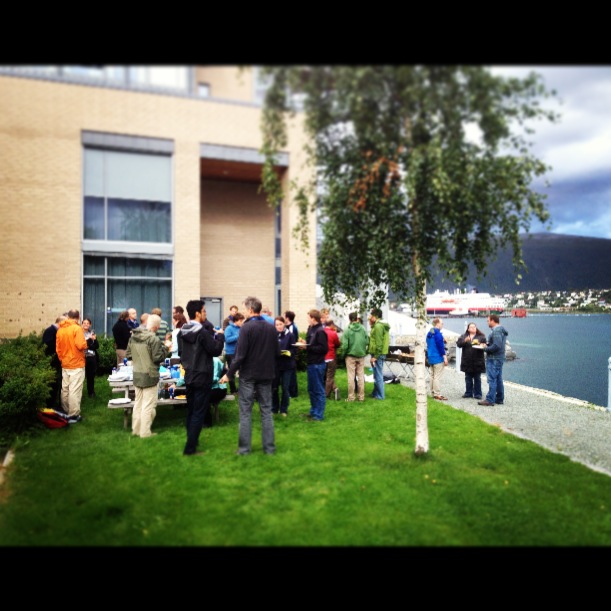Another fruitful discussion took place during two discussion panels hosted by APECS on August 26th, during the International Workshop on Antarctic Ice Rises (http://www.climate-cryosphere.org/meetings/ice-rises-2013) in Tromsø, Norway.
Two sessions covered topics of education and outreach at schools, as well as science communication and interaction with media and policy makers. Six panelists had a broad range of expertise and represented different career stages – from postdocs to senior researchers, which stimulated a great discussion.
While as usual there were many general suggestions and tips for early career researchers, several pieces of advice can be particularly highlighted:
Communication with media/journalists
- Keep the message simple while be true to science
- In most cases, don’t worry about what you said during the interview as general public will mostly remember the fact that you were on TV/radio/newspaper etc.
- Try to talk to journalists before the actual interview. This helps to understand what to expect from the upcoming meeting
- Watch out for opportunities to join media training courses
Working with schools
- Contact relevant organizations: PolarTREC, PEI and APECS
- Bring tangible things and artifacts to classrooms – kids like that
- Show your passion and let kids know that polar researchers are real and normal people
- Use different approaches when talk to different age groups
- Promote polar (earth) sciences as a field where kids could apply their math and physics skills
Science communication to general public
- Use opportunities to join science weeks
- Organize events on your own and together with partners such as APECS (E.g. Science Fairs)
- Cooperation between Art and Science might be very fruitful!
- Try to use press offices at your institution to highlight recently published results
Communication with policy makers
- Normally, politicians are short-term goal driven, so it is difficult to send a message across regarding any long term measures or investments. Try your best if you are in a position to do that. As in other cases, keep message simple, be true to science and bring artifacts!
Also, check out 19April 2013 Special Issue in Science on Grand Challenges in Science Education at http://www.sciencemag.org/site/special/education2013/. A number of good articles can be found there!
Both sessions had positive feedback from workshop participants. Even more positively was met a BBQ that followed the panels and primarily supported by APECS with a contribution from SCAR, the Scientific Committee on Antarctic Research! Many thanks to Justin Beckers and Anna Silyakova for helping with BBQ organization!
BBQ outside Fram Centre. Photo: Alexey Pavlov



